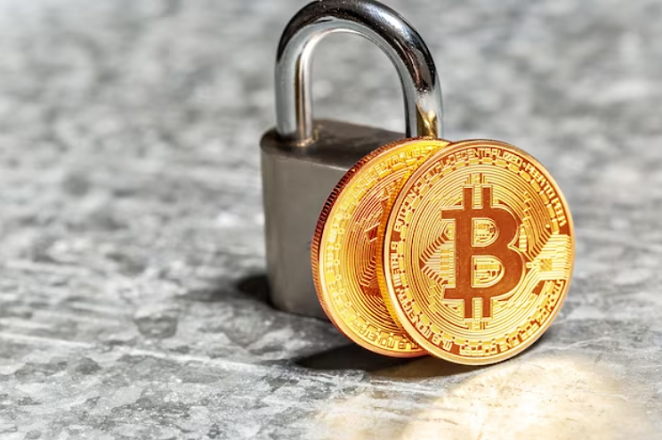By providing a new form of currency that is decentralised and independent of the control of banks and financial organisations, cryptocurrency has captured the attention of the entire world. The risk of cyberattacks has grown as more and more individuals invest in cryptocurrencies like Bitcoin, Ethereum, and Litecoin. Cyberattacks on cryptocurrencies have caused losses totaling billions of dollars in the United States alone.
Cryptocurrencies are secure in many ways, but because they only exist in the digital realm, they are susceptible to hacks. Unwary investors are readily taken advantage of by cybercriminals, who are continuously coming up with new ways to exploit flaws in bitcoin systems. For this reason, it is essential to take precautions to safeguard your bitcoin against cyberattacks.
Keeping your personal information private is equally as important as protecting your cryptocurrency investment when it comes to security. A successful cyberattack on your cryptocurrency could lead to the theft of your identity, sensitive financial information, and not just your money. We’ll talk about how crucial it is to protect your cryptocurrencies in this blog post, along with some helpful advice for protecting your digital assets from hackers. So fasten your seatbelts and prepare to discover how to protect your cryptocurrencies from assaults!
Recognise the Risks
Cyberattacks on cryptocurrencies frequently take the form of malware, phishing, and SIM swapping. SIM swapping is a type of identity theft in which a user’s phone number is taken over in order to access their cryptocurrency accounts. Phishing attacks utilise phoney emails or websites to deceive people into disclosing their login information or other sensitive data. Malicious software is used in malware attacks to access users’ devices and steal their private keys.
Additionally, hackers frequently target cryptocurrency exchanges, which can cause customers to suffer substantial losses. DDoS attacks, in which hackers flood a platform with traffic to bring it to a halt, or ransomware attacks, in which hackers demand payment in exchange for regaining control of the platform, are examples of these attacks. It’s critical to keep up with the most recent bitcoin cyberattacks and take precautions to safeguard your digital assets from harm.
Select a Securing Wallet
Securing your digital assets requires selecting a secure bitcoin wallet. Hardware wallets, software wallets, and paper wallets are just a few of the several kinds of wallets that are offered. The most secure choice is a hardware wallet since it stores your private keys in an offline location where they are almost unhackable. Software wallets are practical and simple to use, but malware can compromise them. The least convenient alternative, paper wallets provide the highest level of security.
It’s crucial to take security, usability, and compatibility with the cryptocurrency you want to store into account when selecting a wallet. Trezor, Exodus, and Ledger Nano S are a few brands of safe wallets. To guarantee the safety and security of your digital assets, it’s critical to conduct thorough research and select a trusted wallet provider.
Put Strong Security Measures in Place
Putting strong security measures into place is essential for defending your cryptocurrencies against assaults. Using two-factor authentication and creating strong passwords can help prevent unauthorised access to your accounts. Avoiding utilising unsecured networks and public Wi-Fi is vital since hackers can quickly compromise them. Protecting your devices from malware and other security risks can be achieved by using antivirus software and firewalls.
It’s crucial to mix letters, numbers, and symbols while making passwords in order to avoid utilising common terms or phrases. Users must provide a code in addition to their password in order to use two-factor authentication, which adds an additional layer of protection. Firewalls and antivirus software both have the ability to detect and stop harmful software as well as network traffic. You may dramatically lower the danger of cyberattacks and safeguard your cryptocurrencies from potential threats by putting these security measures into place.
Watch out for scams
The digital world is full of cryptocurrency scams, so it’s important to be watchful and diligent to prevent falling for them. Ponzi schemes, phishing scams, and phoney ICOs are a few frequent scams. Scammers entice victims into divulging their private keys or other sensitive information by using fake websites, social media, and phishing emails.
It’s crucial to do your homework and stay away from any unwanted offers or demands for information if you want to recognise these scams. Seen as red flags include unrealistic returns guarantees, unsubstantiated claims, and poorly designed websites. Be wary of fake websites that pretend to be trustworthy cryptocurrency exchanges or wallet providers when browsing the internet. Always examine the URL, SSL certificate, and sender information to confirm the integrity of a website or email. You can protect yourself from common bitcoin scams by exercising caution and knowledge.
Stay Current and Informed
It’s essential to stay informed and current if you want to protect your cryptocurrency from cyberattacks. In order to reduce the danger of prospective assaults, it is crucial to stay on top of new threats and vulnerabilities and take preventative action. Regular software and firmware updates are essential for addressing vulnerabilities and ensuring the security of your devices.
You may keep informed about new legislation, best practises, and developing technology by following news and trends in the cryptocurrency business. In order to stay up to date on the most recent changes, it’s critical to follow reliable sources and interact with the community. You may detect potential threats and take the appropriate actions to safeguard your digital assets from cyberattacks by remaining aware and up to date.
Conclusion
Protecting your digital assets from cyberattacks requires securing your cryptocurrency. It’s critical to take preventative actions to safeguard your bitcoin from potential risks given the growing threats and vulnerabilities in the digital world. You may dramatically lower the danger of cyberattacks by selecting a safe wallet, putting strong security measures in place, being wary of scammers, and being educated and up to date.
In addition to following these instructions, it’s crucial to be watchful and exercise caution when working with your cryptocurrency. Never share your private keys or passwords with anyone and always keep them safe. Avoid using insecure or public Wi-Fi and always use multi-factor authentication. To repair vulnerabilities, regularly backup your data and update your software and firmware.
In conclusion, maintaining the security of your cryptocurrency demands diligence and foresight. You may safeguard your digital assets and take use of the advantages of the cryptocurrency world without worrying about future hacks by adhering to these suggestions and advice.
Read More You May Like:
- Keeping Your Cryptocurrency Safe Best Security Practices
- Protecting Your Investments The Ultimate Guide to Cryptocurrency Security
- Safe and Secure The Future of Cryptocurrency Protection
- Safeguarding Your Crypto Strategies for Maximum Security
- Shielding Your Cryptocurrency The Ultimate Security Checklist














Post Comment